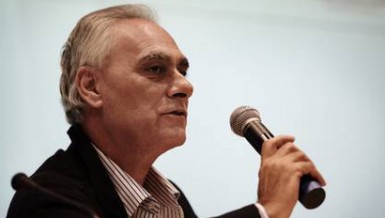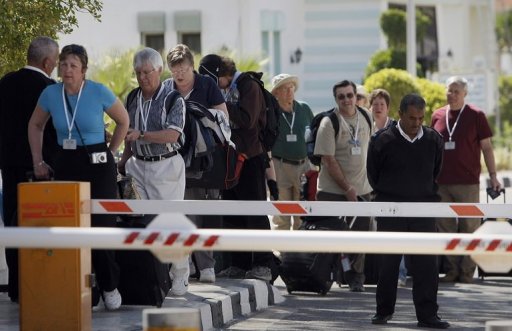
By James M. Dorsey
A long awaited and much hyped announcement on a reform of 2022 World Cup host Qatar in response to condemnation of its controversial kafala or labour sponsorship system has sparked more questions than answers and costs the Gulf state an opportunity to gain the upper hand in a bruising debate that has significantly tarnished its image.
Confusion over what reforms Qatar intends to implement was such that Sepp Blatter, president of world football body FIFA, and Theo Zwanziger, the FIFA executive dealing with the Qatari labour issue have cancelled a planned trip to the Gulf state. FIFA has come under severe criticism for failing to take harsh workers’ conditions into consideration when it awarded the World Cup to Qatar in December 2010.
The confusion stemmed from the fact that reforms announced earlier this month appeared to involve a refinement of the kafala system rather than an overall overhaul or abolition as the government claimed. It was further fuelled by a Qatari statement that future labour contracts would have to be in line with a model contract drafted by the government, the terms of which have yet to be disclosed.
Trade union and human rights activists as well as the United Nations Human Rights Council have demanded that Qatar abolish the kafala system which severely restricts workers’ rights, including their freedom of movement and right to seek alternative employment, and puts them at the mercy of their employers.
“We have many questions what is exactly meant by the changes. I don’t think these measures go far enough,” said James Lynch, an Amnesty International official, who has worked closely with Qatar to change the system. He said the requirement for workers to obtain an exit visa that was “completely illegal” according to international law and a “human rights violation” appeared to have not been completely abolished.
Beyond disappointing those activists with whom Qatar has engaged, the announced reforms threaten to strengthen the hand of hard line critics, foremost among which the International Trade Union Confederation (ITUC), which says it has 175 million members in 161 countries. The ITUC has threatened to organise a boycott of Qatar if it failed to abolish the kafala system.
The reforms that will apply to all workers, including domestics ones would:
n Allow workers with a fixed-term contract to seek new employment without having to first leave the country or seek permission from their initial employer only at the end of their contract. They would not be allowed to break their contract without their employer’s permission;
n Increase the penalty for employers who illegally confiscate workers’ passports;
n Force employers to pay wages electronically to ensure on time payment;
n Enforce as yet undisclosed standards for workers’ accommodation;
n Streamline rather than abolish the requirement for workers to acquire an exit visa before leaving the country. Instead of having to seek their employers consent before departure, workers would apply through an automated system operated by the interior ministry.
One possible reason for Qatar’s bungling of this month’s long-awaited announcement of the proposed reforms is likely the lack of a domestic consensus on the need for change. Many Qataris oppose a relaxation, let alone the abolition of the kafala system, because they fear losing control of their society, culture and country in which they account for only 12% of the population if they grant foreigners rights. The proposed reforms further failed to address a concern in the business community that easing the exit visa requirement could potentially lead to foreigners running their businesses accessing company funds and leaving the country.
At the other end of the Qatari debate, assistant foreign minister Sheikh Mohammed Bin Jassim Al Thani said in a recent interview with Al Jazeera that “the sponsorship system was set up at a different time and according to a different demographic composition… but today the situation has changed and due to the flow of the expats, we certainly need to carry out many changes.”
James M. Dorsey is a Senior Fellow at the S. Rajaratnam School of International Studies (RSIS), Nanyang Technological University. He is also co-director of the University of Würzburg’s Institute for Fan Culture, and the author of The Turbulent World of Middle East Soccer blog and a forthcoming book with the same title.




